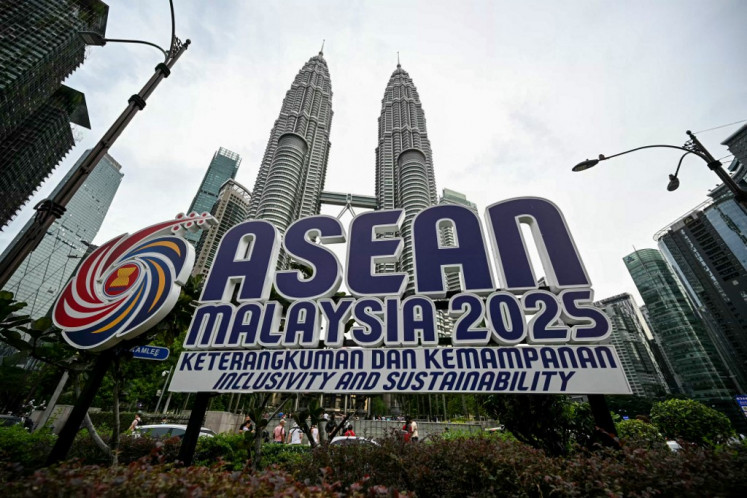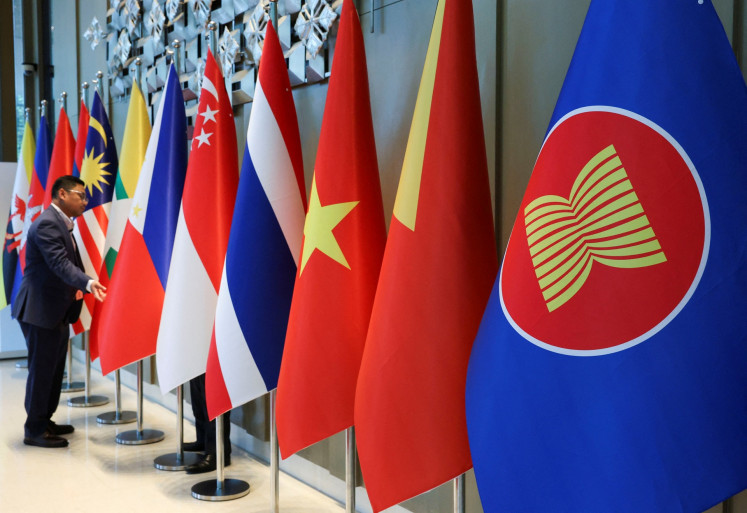ICDX to trade tin futures by mid-December
The Indonesia Commodity and Derivatives Exchange (ICDX) will introduce tin futures on Dec
Change text size
Gift Premium Articles
to Anyone

T
he Indonesia Commodity and Derivatives Exchange (ICDX) will introduce tin futures on Dec. 15 in a move to help set a global reference price for the commodity, of which Indonesia is the world’s largest exporter, and serve as an alternative benchmark for the London Metal Exchange (LME).
New contracts will be offered in 5-metric ton lots and traded in US dollars, ICDX president director Megain Widjaja said on Friday during a briefing on the plan.
Contracts covering tin of a minimum 99.85 percent purity will be traded for 15 minutes daily from 2:30 p.m., with delivery from Pangkal Balam, Pangkal Pinang and Muntok on Bangka Island, the country’s key tin producing area, Megain said.
Indonesian Tin Industry Association (AITI) chairman Rudy Irawan said at the briefing that the move was partly expected to help stabilize the price of tin, which recently fluctuated wildly, and curb speculation by outside traders and brokers.
“This move will make the price stable, with the achieved price taking into account various costs, including reclamation costs, and a margin needed to keep it at a normal rate,” he told reporters on the sidelines of the briefing.
Tin has declined by 25 percent in London this year over concerns that the euro financial woes would further cut demand.
Tin, a material used to make solder for electronic components and packaging, is the second-worst base-metal performer on the LME this year after nickel, Bloomberg reported. In October, local producers halted tin exports in a bid to push up the price on the international market.
Rudy said that at least three local tin producers and eight overseas buyers, such as from Japan and Korea, had committed to take part in the initial trading.
“So far, state tin producer PT Timah Tbk. and private firms PT Tambang Timah and PT Kobatin will join in the transactions. But, it is still possible that other qualified firms, whose products have been certified by the LME, will take part,” he said, adding that the association expected to trade around 2,400 tons on a monthly basis.
Rudy said that as there was no Indonesian National Standard (SNI) for tin, local producers would refer to the LME’s standard certification.
“Our first priority is to set the quality standards. Later, after the SNI is introduced, we will register it under the name of Inatin [Indonesia tin] market,” he said.
Rudi expected that besides establishing the SNI, the government would also promote a strict regulation in order to avert illegal transactions with the reference of the exchange but using a price lower than the actual price on the exchange.
Commodity Futures Trading Supervisory Board (Bappebti) head Syahrul Sempurnajaya said in response to the request that the government would soon introduce a new decree on tin trade.
“It will regulate, among other things, the combined harmonized system (HS) code and requirements for listed exporters, such as recommendation from the association and local administrations,” he said.









